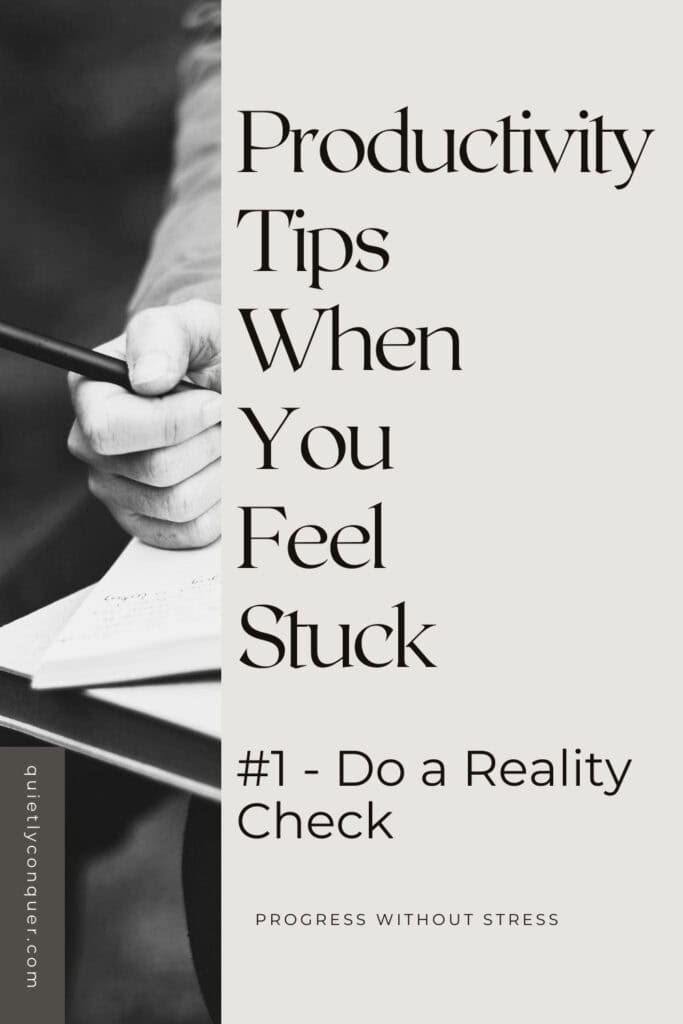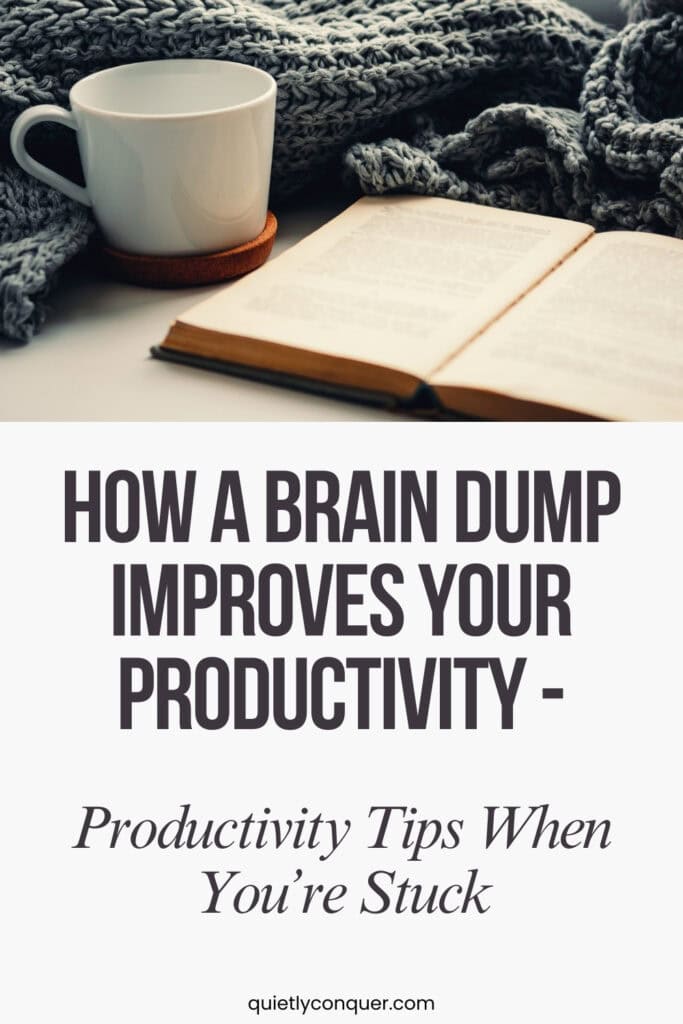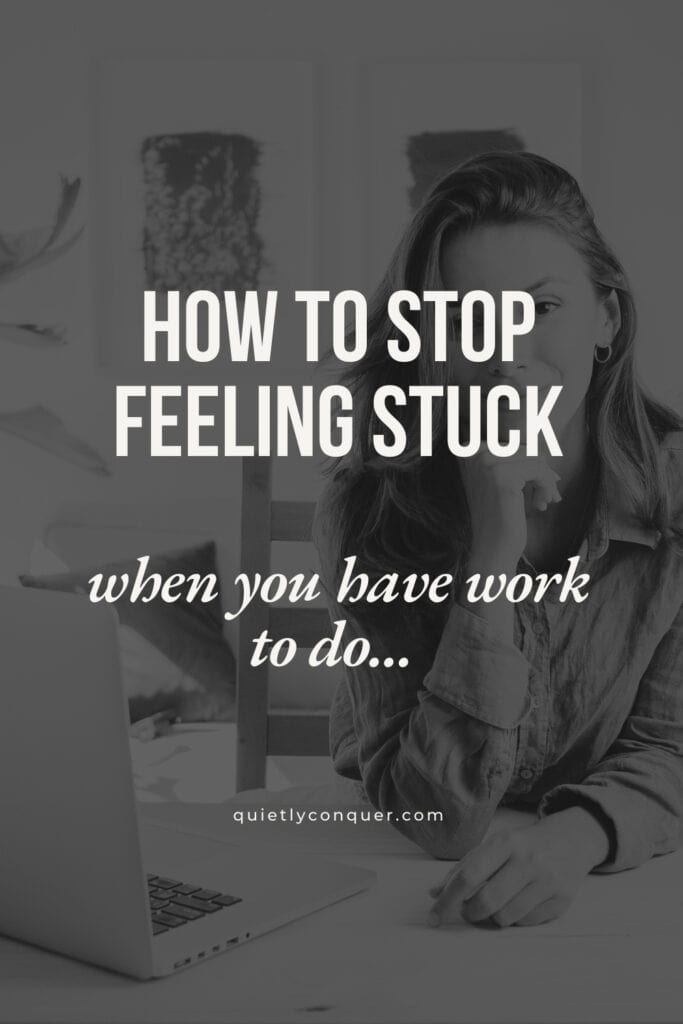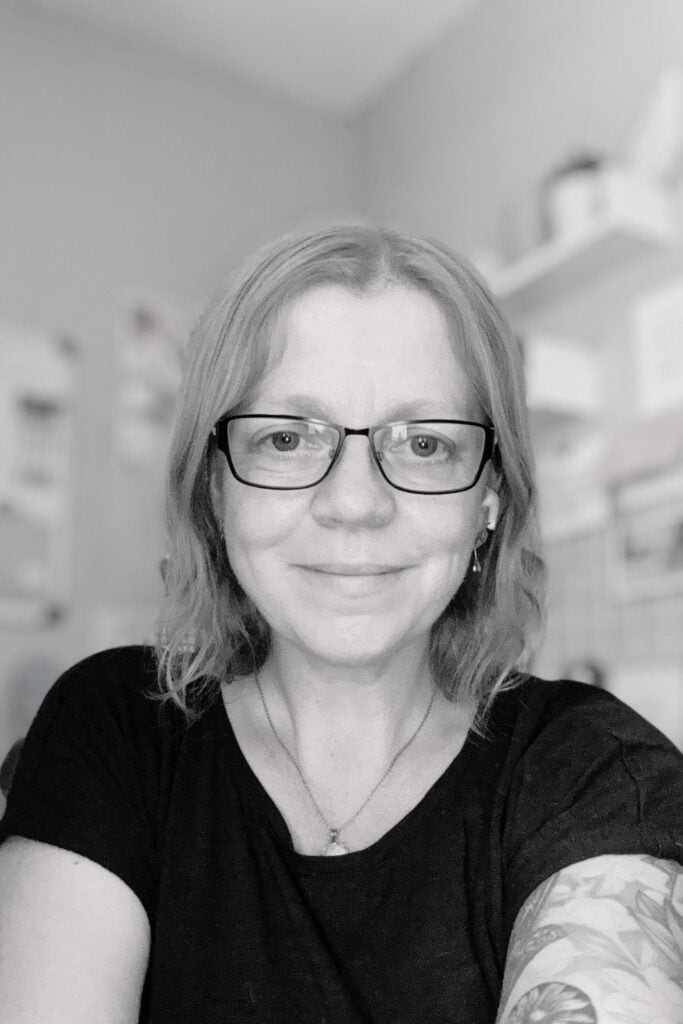Top Productivity Tips For When You Feel Stuck

Productivity Tips
Do you constantly feel drained by your daily working practices? In this blog we explore some of my favourite time management and productivity tips that help you feel more organised, in control and ready to tackle your work with confidence.
When you learn how to work with your energy things begin to feel easier. If you manage chronic illness, fatigue, or burnout, these tips will help you manage your workload more effectively and enable you to make progress at your own pace.
When you learn how to work with your needs, energy, abilities and limitations it will improve your confidence in your own abilities, and avoid struggling with exhaustion at the end of each day.
*Affiliate Disclosure: Some links in this post may contain affiliate links. If you purchase something via the link, I may receive a small commission. This doesn't affect the price you pay.
If you have any questions, reach out for a chat [email protected] or check out my other blogs
Table of Contents
Planning Pre-work:
Do a Reality Check
To begin with, it's important that you're fully aware of what your current reality – what life looks like for you day-today, including your commitments, abilities, and your limitations.
If you’re about to start working on a project, for example, building a business, writing a book or setting up an online store; this awareness needs to be the very first thing you focus on.
This awareness gives you the foundations – the benchmark of what you have to work with. Yes, we all have 24 hours in a day, but that looks and feels a lot different for lots of people, for various reasons.
24 hours for someone who is energised, fit and healthy will be experienced differently to those who manage energy or health issues. For example, you work Monday – Friday 8am – 5pm and also have the stamina in you to do things outside of work. For someone like myself, the regular routine of 8-5pm 5 days a week simply isn’t possible.
There isn't any energy left for extra activities outside of work, even on reduced hours if I need to be able to show up the following day.
This is why planning with my energy limitations in full focus is essential. If your energy is impacted similarly, know that there are options, and ways that you can make it work.
Although it’s different, you can use this knowledge of your reality to shape how you approach your work. There are ways to create a balanced life that allows you to continue to make consistent progress.
Using this awareness means you can figure out a way of working that supports your energy, and the fluctuations that inevitably occur each day, and lessen the risk of burning out whenever you try to get work done.
Your reality may be that you're juggling children, a second job or caring for a loved one. These things will impact the amount of time, energy and mental capacity you will have each day.
What do you need to take notice of?
The main things that work for me are:
- Your energy levels
- Fluctuating health issues (e.g. acute symptoms like migraine, nausea, flu etc.)
- Other commitments (e.g. children / family)
- Current work commitments
- Your mindset and confidence
- Your overall goal and the timeline you’re working towards
- How long you spend on your work / specific tasks each day
Each of these will help you identify what you have to work with, and to create a real picture of the time and energy you will have. It's also good to be aware of the overall timeline as well as specific tasks because people often underestimate the time something will take. Filling every second of predicted time you'll commit to a goal can lead to pressure and stress if unexpected things crop up.
I highly recommend doing a Time Audit so that you can evaluate your focus and productivity. This will help you create the most efficient daily schedule, and identify those danger zones where time appears to magically disappear…
For example, time thieves might include research, content creation or other creativity tasks. For me, Canva can be dangerous as I love creating, and time always flies by… I love using Canva and due to my digital product store and stationery business I spend a big percentage of my time there. It’s so easy to overextend my time.
On a less fun note, things like getting caught up reading new emails as they fall into my inbox throughout the day can often take me off down rabbit holes instead of remaining focused.
With emails, it can be too easy to check them as they pop in, especially if it looks interesting or I’m feeling less focused. This not only interrupts flow, it can mean I fall behind on my own targets for the day.
The time and energy audit was eye opening for me. I developed my own version (which you can grab for free), It's a brilliant way to get total clarity on where you spend your time and what changes you need to make.
If you do this as part of your pre-work I promise you’ll be surprised and you’ll definitely identify areas where you could bring in change.
Brain Dump to Prioritise
I LOVE Brain Dumping – honestly I do, plus it’s a great way to introduce a daily journaling practice. It features in all of my productivity tip posts because this and journaling have been key for me in my work.
Brain dumping is decluttering for your mind, and you know how satisfying having a clear out of your home is! Creating space in your mind will help regain clarity, and make space for what you want to focus your attention on.
They're also great to do at the start of a new project, or as part of your monthly, weekly review. Getting thoughts from your head onto paper means you can visually sort through them, prioritise and let go of the things that you don't need to worry on right now.
How to do a Brain Dump:
There’s no right or wrong way to do a brain dump, and it will vary depending on what you’re currently needing to gain clarity for. A brain dump is simply a tool to empty all of those thoughts in your head that are impacting your focus, energy and making you feel overwhelmed.
Remember, it’s a quick and easy tool for you to clear your mind – not to add to any pressure you may be feeling. Keep it simple – always!
Here’s how you could use a brain dump:
- Write down everything you have going on. Personal and professional.
- Separate personal / professional things (or split the page before you begin).
- Write down things you’ve learned or new ideas that you have and want to start.
- Make a note of your current goals (things you’re already working on).
- Identify all of the tasks you’re working on or need to work on to reach this goal.
- Using everything you’ve written down, highlight or organise all of the things that are key to moving your progress forward. This is to help you prioritise with more confidence.
Brain dumps are great for making quick notes when a new idea for a project or product pops in your head. If you see something that sparks your creativity and think “I need to do something like that!” but need to stay focused on the task in hand… use a brain dump to keep a record of them all.
THis means you can let the thoughts go and not get distracted by the shiny new idea that’s making you feel excited (hello ND squirrel brain!).
It's helped me stay focused on what I’m currently doing, and not just always adding more to it. I know I can come back to it later. This works great for my brain because if I leave the ideas floating around in my mind it becomes a distraction really quickly.
Break down your Goals
Getting crystal clear on your goals is crucial if you want to work more efficiently. When you have a clear plan, and you break these goals into medium and short term plans, you not only reduce the risk of overwhelm, but you' also make it much clearer you'll also know exactly how to get there.
If you’re working on a big goal, like setting up an online store, writing a book, or launching a new membership, break the goal into smaller steps. Work out what you need to get done and by when (remember to refer to your pre-work). Have a clear overview of the steps you need to follow so that you can pick up where you need to depending on the time you have that day.
It can help to step away form the big picture focus for a while as well if you're feeling overwhelmed. When you have these smaller goals and steps mapped out, they feel less daunting, making it easier to stay on track. It also means you will regularly reach targets and have be able to celebrate these small wins along the way – great for motivation!
When you focus only on the next step(s) rather than the whole process, it removes some of the overwhelm and lessens the risk of procrastinating.
Activity: How can you break your yearly and quarterly goals into smaller steps for your monthly, weekly and daily focus?
Plan For Your Energy Levels
I think the key thing to remember is that productivity isn't just about finding ways to work faster. It's about becoming more intentional and focused as you are working towards your goals.
Your plan needs to be realistic. Think back to the pre-work. What is your current reality, and how does this impact your monthly, weekly, daily goals? Are your bigger goals achievable? Are your timelines realistic? Have you filled every minute, or have you created space in your schedule for rest and fun?
Energy Planning Tips:
There are a few different things you can do. If like me you're pretty aware of how your body responds, when it needs rest, and when you can push a little more, you'll be able to use this to create a flexible plan – with flexible being the key word.
For example, if you know you're energy is higher in the morning or in the afternoon, plan your day around this. Trust that there may be days where you are able to start work earlier or finish later – but don't add these as busy times – keep them protected. This gives you more choice and freedom day-to-day.
Put “Do Not Disturb” on your phone and devices to remove distractions from your socials, emails or calls. This is essential if you run multiple businesses / have a family / are easily distracted. GIve yourself frequent breaks to check, and trust that not responding instantly to calls / emails is okay!
Create a Bare Minimum Plan. I have a bare minimum plan which helps me to continue to make progress when I can with my fluctuating health and energy levels. If I know I am not going to be able to work to my best, I only focus on the essential things (e.g. client communication / calls), and then I rest.
Once I'm feeling a little brighter I return to my main plan. I review goals for the month, and readjust where I need to. But the beauty of flexibility is that the times when I have a little more energy, I sometimes do a little more. So everything evens out across the month because I set realistic goals.
Time Audit Planning. Look back at your own time audit. Use it to prioritise tasks that take less energy. As you map out your week, don’t put too many high-energy tasks together. Spread them out more, and add more break times in as well. This will help you create the balance needed, and space for those unexpected things, or dips in energy.
Managing Excitement. I get that it’s so hard when you’re working on something big and exciting, but holding boundaries are essential to avoid the crashes that can happen if you don't switch off enough.
Be mindful of your energy whenever you sit to do your planning. It’s something I do at least monthly because patterns of working too much, easily sneak in and you’re not always aware of it until your body starts to show you!
Time Blocking & Task Batching
Time blocking is another favourite technique. It's where you map out in blocks in your planner what you'll be focusing on over the next week.
I clearly mark the start and end of my days and then I block out time according to what’s happening. I begin by blocking out (Highlighting with different colours), the times I’m working with clients or have meetings.
I then block out free time / breaks (e.g. lunch)
As I complete my weekly planning I can then clearly see how much time I have across the week to work on things. I plug this into the planner either using:
- Daily Themes (e.g. admin day)
- Hourly Themes (e.g. marketing)
- Energy Based Actions (e.g. high / low energy tasks)
For Batching I create themes for the different tasks or stages of work. For example, when I write blogs I don’t write one then upload, add images, publish, do SEO tasks and share. I split it into separate stages.
- Researching and planning
- Headings and Subheadings
- Writing
- Image Batching on Canva for post and Pinterest
- Publishing and SEO
The reason why batching can be so effective, is because it lessens the start / stop that interrupts your flow. If you’re in the zone with writing, it makes more sense to carry on writing as your brain is already focused. If you then stop to do the other bits, that flow is broken and costs you time.
A study from the University of California-Irvine found that when you stop working on one thing and put your attention elsewhere, when you return it takes around 23 minutes to become as focused as you previously were.
This is why multitasking can actually impact your productivity and cost you time and money – even if it feels like you're getting a sh*t tonne of stuff done because that to-list is full of green ticks.
The problem is though, it's more likely that those green ticks are for tasks that are less important or challenging, meaning you'll just have to come back and start again on that task anyway!
Plus you may not actually take the information in if you're not fully focused on what you're reading / learning. This means it's less likely that you'll even retain the information consumed!
Mindset For Motivation:
Self Belief – As with everything, your mindset will influence your actions. Allow yourself to be a beginner, to get things wrong without self-judgement. Confidence comes with practice, and this is when your self-belief will deepen.
Perfectionism – If you’re aiming for the best version of everything you do before you even get started – the risk of not starting at all, or procrastinating will be high. Approach work with the attitude that this is a draft, and you can improve it in time. It helps to lock you into the creative flow rather than focus on grammar or sentence flow.
When I work with my students I suggest that they initially aim for good enough if they’re finding it hard to get started. This release of pressure to get it right straight away, is usually enough for them to move past the block.
Courage to Begin – If you’re someone who waits for things (or yourself) to be different, it’s time to change that! Have the courage to take that first step – even if it’s a mini shuffle across the starting line. A lot of the stress and worry about a new project happens before you make a start. By committing to start, you can step away from those worries and actually focus on what needs to get done.
Compassion – Along with courage, a huge dose of compassion is needed. When you first start something new – you’re a beginner. Own that and be okay with that. Release the pressure of getting things exactly how you want them right away. Give yourself the grace to learn and develop without heaping unrealistic expectations on yourself. Your confidence will grow as you become more familiar and naturally improve!
Getting Unstuck Prompts
- Feeling stuck & full of “what if’s?” Ask yourself instead: What if it all works out?
- What can you do today to make things easier for yourself tomorrow?
- What time of day are you most focused and productive?
- What is one task you always put off? Why do you put it off, and how could you approach this differently to make it less daunting?
- How can you become more consistent with your approach to work without feeling suffocated by strict timelines?
- What tasks do you love working on?
- How do you show yourself compassion when you’re experiencing low energy?
- What do you find most helpful when you’re focused on your work?
- What’s something you’re putting off because you don’t feel ready? What would being ready look like for you?
- What words of encouragement could you give yourself when you don’t believe you can?
Final Thoughts
I hope you found these productivity tips useful. I'm a firm believer that one cap doesn't fit all. From my experience, with things like productivity, it's about finding what works for you.
If you're also managing low energy / chronic health issues, finding a way to understand what your mind and body needs is essential. Improvements happen once you begin working with your energy and your strengths, and being fully aware of limitations or things that you tend to avoid.
Tools, Resources & Support
Take a look at these tools & resources that will help you with your intentional planning, seasonal goals and personal growth:
Time Audit Workbook (Free) Understand exactly where you time and energy go. Create a plan that will work with you and your energy.
90-Day Planner – This printable 90-Day planner is the perfect companion for you as you set your focus for the next 3 months. Use it every 90 days to help build consistent habits and achieve your goals with ease.
Notion Navigators – If you want to learn how to use Notion and grab some AMAZING dashboards, I highly recommend joining Jakolien. As someone who was scared of Notion and found it too complicated, I now use it daily thanks to the best daily planner system I've ever used. I cannot recommend it enough – my ND brain feels settled, goals are clear, tasks are right there for me to see – so no more decision fatigue, and a much calmer mind.
Impact Stationery – Have you ever dreamed of creating your own high-end stationery products? The brilliant Laura has an amazing course & community designed to help you create premium printed products (planners, journals, decks etc.), that you can market on Amazon, or your own website. It's not KDP, these are not print on demand. The quality of the products produced within the community are incredible, with many seeing incredible returns already.
If this post helped or you enjoyed reading it, please share one of the images below as it really helps my blog – Thank You!



Meet Lynsey

Hey there! I'm Lynsey, a counsellor, coach and mentor for women who want to create change, but are feeling lost, uncertain and exhausted. With over 7 years’ experience of training, running businesses, and over a decade as a tutor and adult trainer, I've learned the value of a gentle and intentional approach to work and life that energises you without draining all of your energy.
I've lived with ME/CFS since 2011, and since then re-trained as a counsellor, and achieved a distinction for my Masters in Counselling and Psychotherapy Practice; all while running 4 businesses!
How? Improving your mindset, finding acceptance in yourself, and developing a gentle, but solution-focused approach to achieving goals is key. Knowing that it's not about how fast you move, but finding your own pace and trusting that you can achieve your goals in your own way, one step at a time.
If you'd like to know more about working with me, you can email [email protected] or find me on socials (links in the menu)
Have you seen my online store Quietly Conquer – Find DFY templates, downloads and more!






